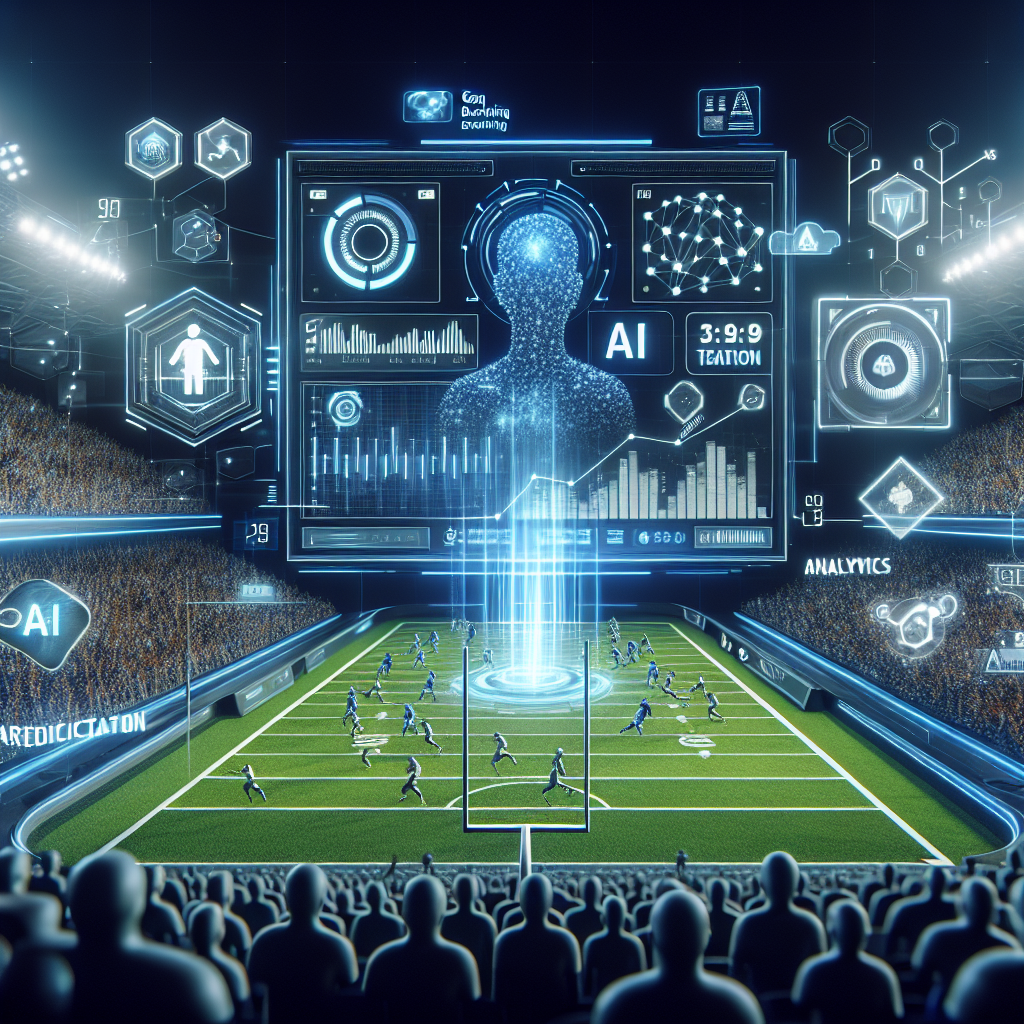The Future of AI in Sports Broadcasting Platforms
Artificial Intelligence (AI) has been revolutionizing various industries, and sports broadcasting is no exception. AI is changing the way sports events are captured, analyzed, and broadcasted, enhancing the viewing experience for fans around the world. From automated camera technologies to real-time data analytics, AI is reshaping the future of sports broadcasting platforms.
One of the key areas where AI is making a significant impact in sports broadcasting is through automated camera technologies. AI-powered cameras can track players, follow the action, and provide viewers with a more immersive experience. These cameras can detect and analyze movement patterns, recognize players, and adjust angles and zoom levels in real-time to capture the best possible shots. This technology allows broadcasters to deliver high-quality footage that enhances the viewing experience for fans.
Another way AI is revolutionizing sports broadcasting is through real-time data analytics. AI algorithms can analyze vast amounts of data in real-time, providing broadcasters with valuable insights and statistics that can be used to enhance the commentary and analysis of sports events. This data can also be used to create interactive graphics and visualizations that provide viewers with a deeper understanding of the game.
In addition to automated camera technologies and real-time data analytics, AI is also being used to personalize the viewing experience for fans. AI algorithms can analyze viewer preferences and behavior to recommend content that is tailored to individual tastes. This can include personalized highlights, player stats, and even live streams of specific games or events. By personalizing the viewing experience, AI can help sports broadcasters attract and retain viewers in an increasingly competitive market.
AI is also being used to automate the production of sports broadcasts, reducing the need for human intervention and streamlining the production process. AI-powered editing tools can automatically generate highlights, replays, and graphics, saving broadcasters time and resources. This automation allows broadcasters to deliver more content in less time, improving the overall quality of the broadcast.
In the future, we can expect to see even more advancements in AI technology in sports broadcasting platforms. As AI algorithms become more sophisticated, they will be able to provide even more detailed and accurate analysis of sports events. This will allow broadcasters to deliver more engaging and informative content to fans, enhancing the overall viewing experience.
Additionally, AI-powered virtual reality (VR) and augmented reality (AR) technologies are likely to play a larger role in sports broadcasting in the future. These technologies can provide fans with a more immersive experience, allowing them to feel like they are actually at the game. By combining AI with VR and AR, sports broadcasters can create truly unique and interactive viewing experiences for fans.
Overall, the future of AI in sports broadcasting platforms looks bright. As technology continues to advance, we can expect to see even more innovative applications of AI in sports broadcasting, enhancing the viewing experience for fans and revolutionizing the way sports events are captured and broadcasted.
FAQs:
Q: How is AI being used in sports broadcasting?
A: AI is being used in sports broadcasting in a variety of ways, including automated camera technologies, real-time data analytics, personalization of the viewing experience, and automated production of sports broadcasts.
Q: What are some of the benefits of using AI in sports broadcasting?
A: Some of the benefits of using AI in sports broadcasting include enhanced viewing experiences for fans, improved analysis and commentary of sports events, personalized content recommendations, and streamlined production processes.
Q: What are some of the challenges of using AI in sports broadcasting?
A: Some of the challenges of using AI in sports broadcasting include the need for large amounts of data to train AI algorithms, the potential for bias in AI algorithms, and the complexity of integrating AI technologies into existing broadcasting workflows.
Q: What can we expect to see in the future of AI in sports broadcasting platforms?
A: In the future, we can expect to see even more advancements in AI technology in sports broadcasting platforms, including more sophisticated analysis of sports events, the integration of VR and AR technologies, and even more personalized viewing experiences for fans.

